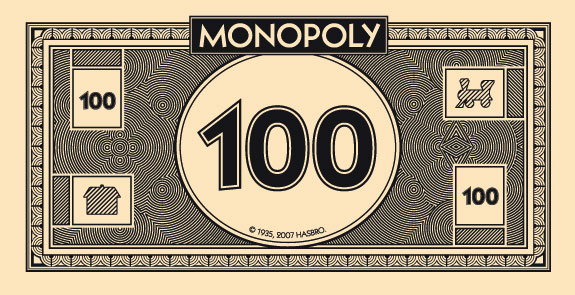Ahem: text-heavy post ahead!
Recently, I was talking to a friend about getting the Airbnbs up and going. We were weighing the pros and cons of charging the upfront costs (~$7,000) to a credit card and carrying the balance until the business became profitable – usually 1-2 months in this case.
He said, yes, of course it’s worth it. It’s “smart debt.”
It got me thinking about this hobby and all the points and miles we love to earn.
The points and miles cards we all hold earn us, obviously, point and miles. But, beyond that, they are important financial tools. Your credit is one of your most important assets, and I feel no one talks about the credit cards as an avenue for anything beyond earning points and miles – and that avenue is great – but by extending us credit, the banks open up other opportunities for us.
Now, in starting up my side hustle, there was no way I wasn’t going to run all the expenses through a points or miles card, but I’d never considered the idea of not paying it back at the end of the billing cycle. I’m of the mindset of never paying a dime of interest – but is it OK, in certain situations, to carry a balance?
Smart debt
- Link: Apply for Card Offers
Having some sort of debt is nearly unavoidable. Between student loans and mortgages, most of the population is in the “being in debt” category. I ran some searches to educate myself about the concept of smart debt, and no one mentioned credit card debt. So I’ll mention it lol.
Smart debt is the kind that will end up helping you financially either short-term or long-term.
With credit cards, the line between smart and dumb, and short-term and long-term is really blurred.
Say you want to start up a side hustle – and the cost to do so is $5,000. But you don’t exactly have $5,000 in the bank.
You have a credit card with a credit limit of $20,000, which is a really awesome thing. That means that a bank entrusts you to spend up to that limit and they reasonably expect you to repay all of it.
If you pay it all back before the due date, you avoid all interest. So let’s say that $5,000 costs you $50 a month in interest if you don’t pay it all back.
The time frame I’m thinking is 6 months.
If you reasonably expect that by the 6-month mark that you will earn back $5,000 + $300 in interest ($50 x 6 months) – or $5,300, you’re right at break even. But, you’ve paid $300 for the privilege of buying yourself 6 months of time to start yourself up.
Say that by the 6th month, you make $10,000, owing thanks to the cushion of time you gave yourself – and you would NOT have made that otherwise without paying the startup costs. Now you’re well into profit mode.
Whether that’s worth it or not is really up to you. Personally, I think it sounds like the cost of doing business. But you must have reasonable expectations to repay all of that money within a specified timeframe. I really wouldn’t carry any type of balance for over 6 months.
Positive impacts
Carrying a balance will impact your credit.
- If you pay it all back, it’s a signal to the banks that you can be trusted to manage your credit limit
- If you expect to profit, you will have created a new opportunity for yourself, which is invaluable (psychological impact)
- You will earn points/miles, possibly clear some sort of threshold bonus
Negative impacts
This, unfortunately, will be a longer list, which should underscore the weight you should give to the decision to carry a balance.
- If you approach your credit limit, you could (temporarily) make your credit score drop. Your score is comprised in part by the ratio of available to used credit, and carrying a balance will make that ratio higher
- While carrying a balance, you might not have room for everyday purchases
- If you miss a payment or are late, it could impact your credit for the long-term
- By carrying a balance, it’s easy to convince yourself of “one more month, just one more” (psychological impact). Have a hard deadline and stick to it
- If you are unable to earn the money to pay back the balance, it could send you into a debt spiral, which is hard to dig out of
- By paying the balance down, you may find you don’t have enough left over for other payments, so you must balance carefully
- If your interest rate is over 10% (which is true for most premium credit cards), you are giving money to the banks for the privilege of having them hold a balance for you – you must be sure what you’re doing is really worth it
- That being said, if it is worth it, and will give you a better quality of life for the foreseeable future, you may make the decision to carry some “smart debt” temporarily
Bottom line
- Link: Apply for Card Offers
I’ve been thinking about this a lot lately, and how much these banks trust us with huge sums of money. The economy is improving and credit lines are increasing. There are also more opportunities for entrepreneurs.
The line between smart debt and dumb debt can be incredibly thin. The line between short-term and long-term can be more flexible, to a point.
I am fascinated by credit cards not only for their points and miles-earning abilities, but as their place in our lives as important financial tools that can help us or hurt us.
I do think that in certain situations, it might be OK to carry a balance, but all pros and cons should be given careful consideration. I also think that sometimes you are given an opportunity, and life is short – GO FOR IT.
It’s a personal decision with no clear answer other than take it case-by-case.
Beyond earning points and miles, has anyone ever had a reason to carry a balance for a little while? Can carrying a balance ever be a smart financial decision? (I feel like Carrie Bradshaw when I write these.)
Earn easy shopping rewards with Capital One Shopping—just log in and click a link.
Announcing Points Hub—Points, miles, and travel rewards community. Join for just $9/month or $99/year.
BEST Current Credit Card Deals
The responses below are not provided or commissioned by the bank advertiser. Responses have not been reviewed, approved or otherwise endorsed by the bank advertiser. It is not the bank advertiser's responsibility to ensure all posts and/or questions are answered.





I think the main thing missing here is a mention of 0% cards or no-fee / low fee / no-interest balance transfer offers. If you’re going to carry a balance, you’re best finding a 0% promo offer.
I completely agree. I am planning to expand on this idea in a separate but related post.
But yes, if you can capitalize on a 0% promo that is a GREAT way to get ahead for free!
Once upon a time, I left a very lucrative job on Wall St, and when I left my spending habits went with me. I left to pursue a very low paying industry but something that would make me much happier. Long story short, the course correction of my spending habits caused me to use credit way to frequently and I racked up a debt that stayed with for over a year. So i paid the bank so much money for the right to carry that balance. Jan 2015, i became debt free. Subsequently, I joined this whole mile and point game for the first time so I can get status with my favorite carrier and get more out of my personal and business spending. Previously, I was barely racking up rewards.
To answer your question, I think carrying a balance, similar to taking a loan, can be incredibly smart as long as it’s an active decision and not an accidentally slip up. If you’re trying to advance your earning potential and to do it you need credit – you just need to calculate the risk and potential earnings correctly. My preference though, would be to take a out a personal loan at a much lower risk (forego the credit card rewards) because the downside of not hitting your target pay off debt date can be disastrous at a rate over 10% or greater when a personal loan comes in closer to 4-5%. But that really depends on the risk involved and the size of the debt we’re talking. It’s always nice to rack up that many points at once, just needs to be worth it.
Justin, congrats on being debt free!
I absolutely agree with everything you’ve said. Finances are very personal and should definitely be given the appropriate care.
I do see the benefit of taking a personal loan over credit card rewards… and like you said, it’s the size of the debt and the potential payoff… needs to be worth it, absolutely.
Congrats again and thank you for your thoughtful response.
Thank you. Look forwarded to following your blog!
Thank you for this post Harlan! Quite refreshing to read actually and reminds me more of a post from the credit card blogs.
I grew up in a household where I was taught not to spend money that I didn’t have & to treat a credit card like a charge card (aka pay it all off at the end of the month.) However, in college, I realized carrying a balance is not the end of this world as long as I’m responsible in paying it off in time before the higher % rate kicks in (the balance was on a 0% APR card.)
In addition to looking for 0% APR cards, another option may be to transfer that balance to an existing card that is currently offering 0% balance transfer APR for a year or 16 months. The transfer fee itself tend to be quite modest.
Kudos to JustinB to be debt free! Feels great, doesn’t it?
Thanks for reading, Joey!
Totally agree about the 0% transfer. The Amex EveryDay Preferred has 0% APR right now for 15 months, which is very generous.
There’s also the Chase Slate card, which seems built for this purpose.